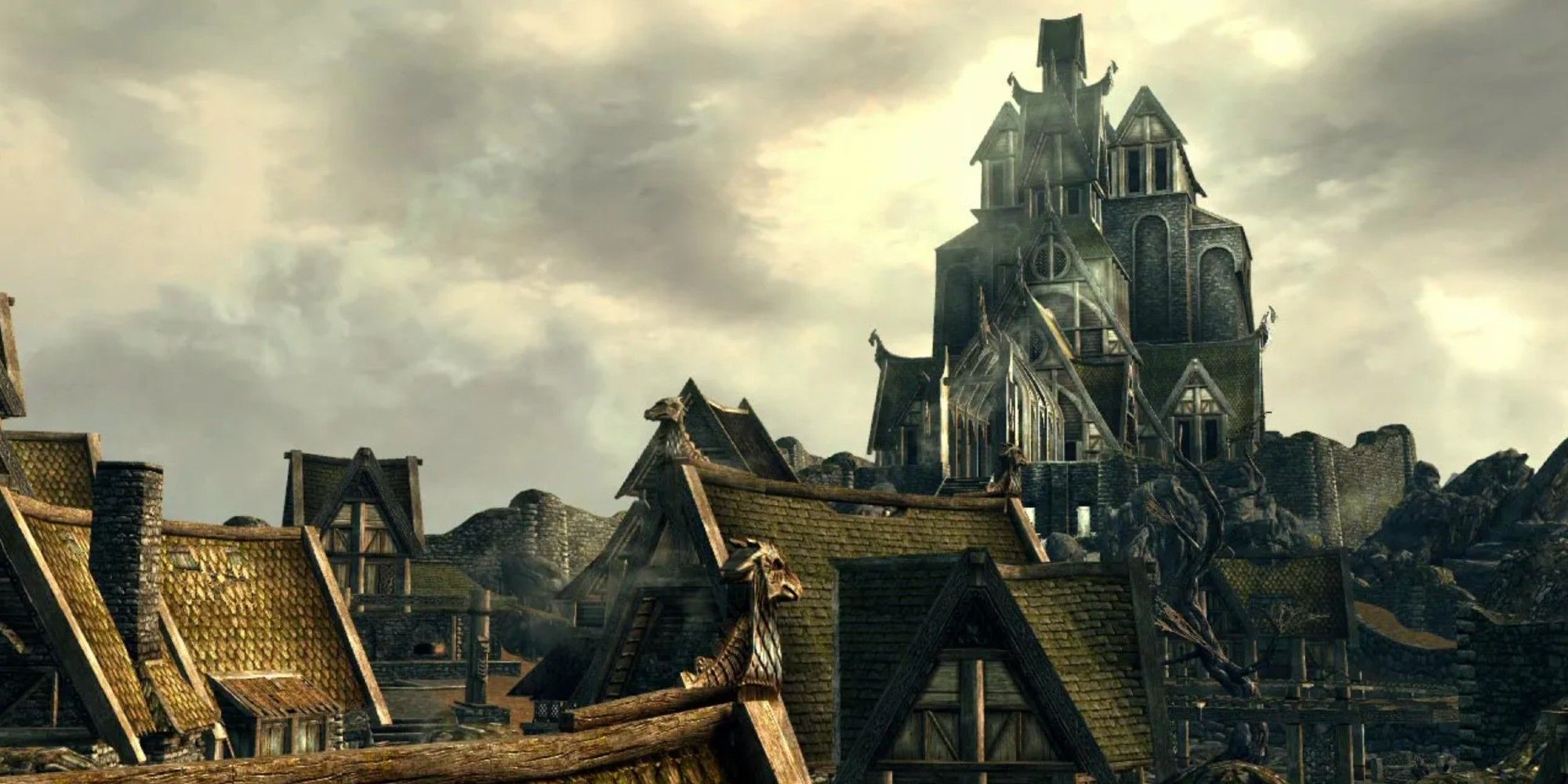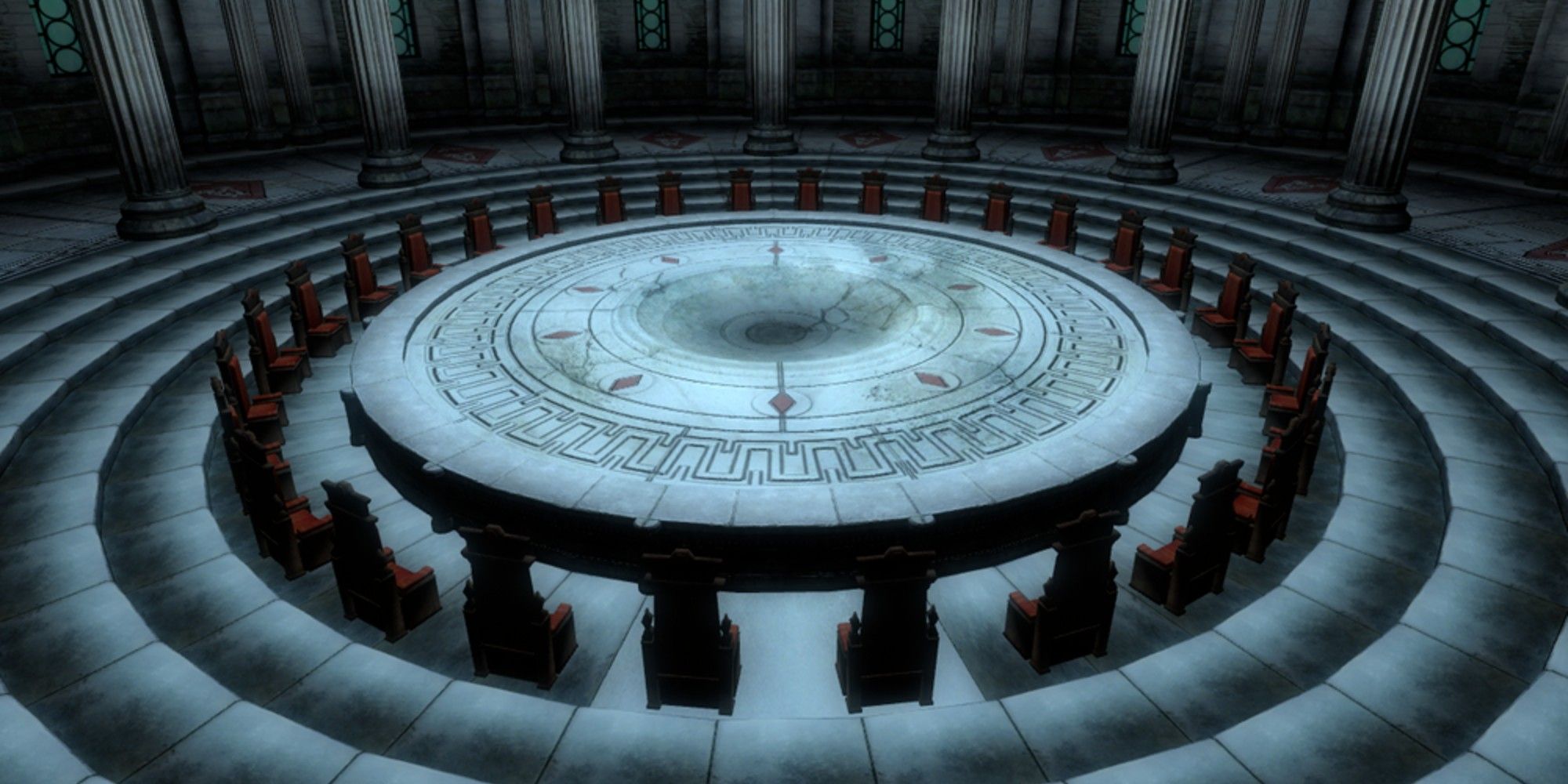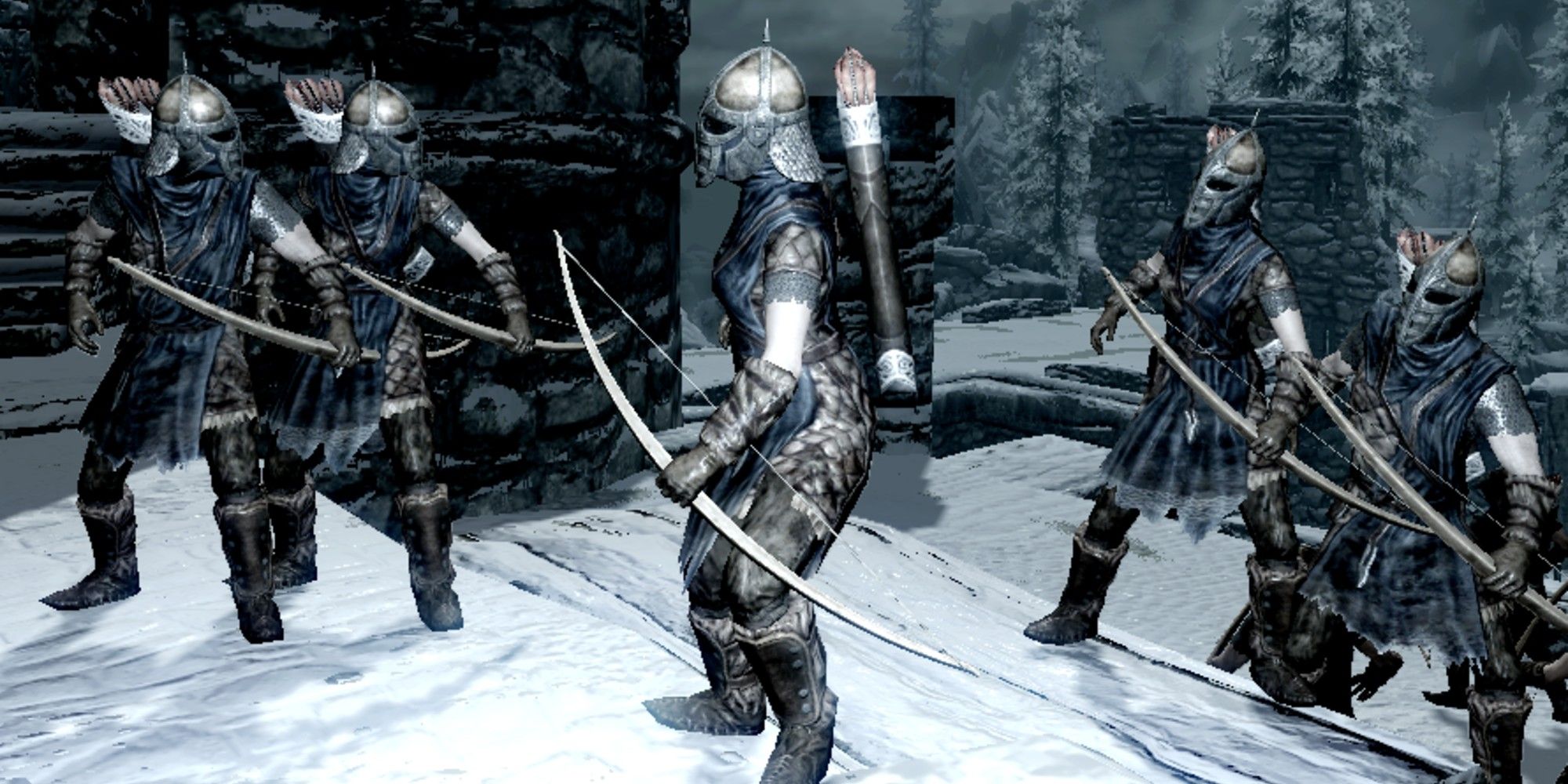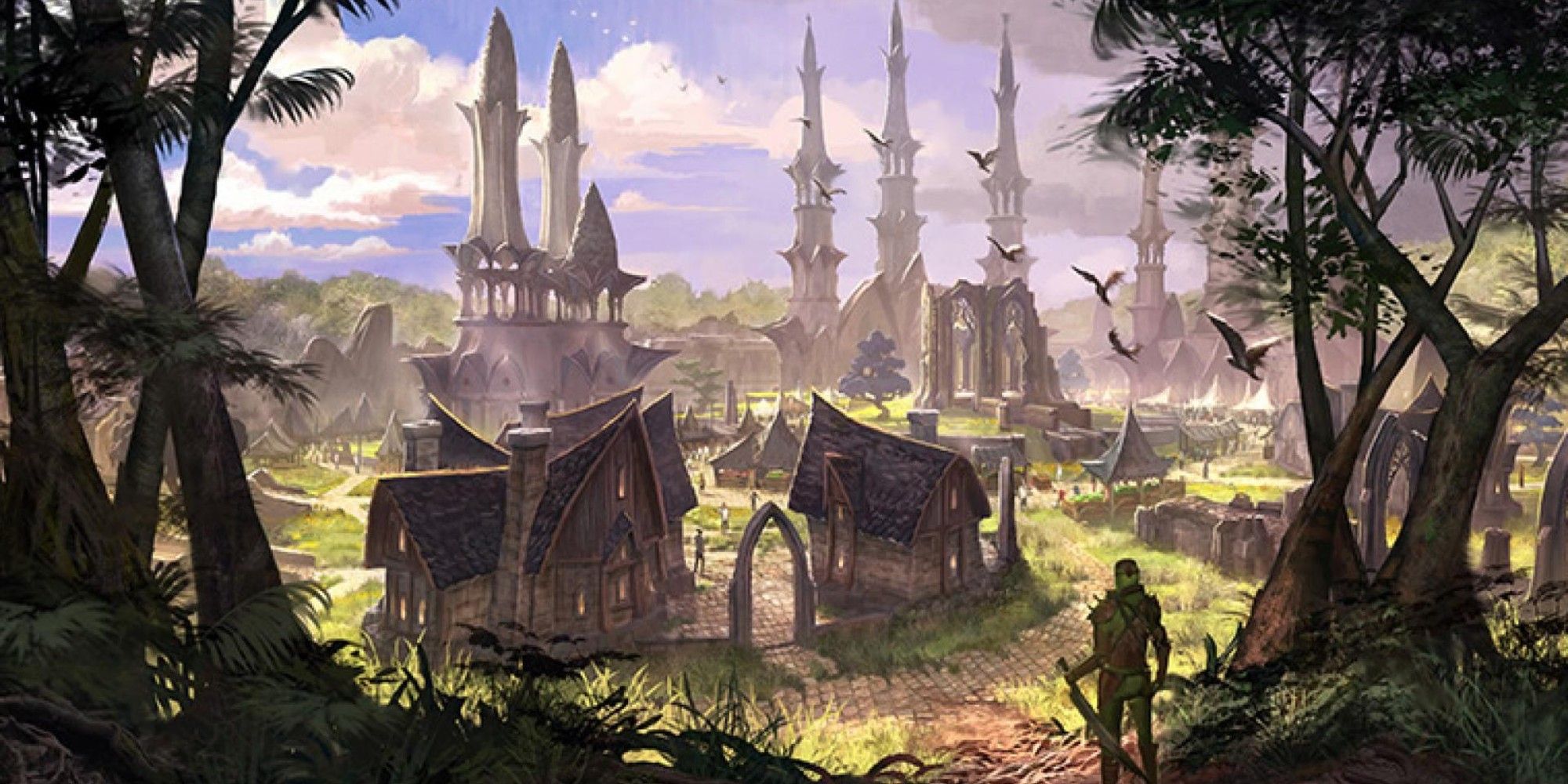Though not much about The Elder Scrolls 6 has been revealed, much of its plot will likely depend on crucial information from The Elder Scrolls 5: Skyrim. This is not unusual for the franchise; each game in The Elder Scrolls is usually affected by the events of its predecessor. Arena, Daggerfall and Morrowind follow the reign of Uriel Septim VII, culminating in Oblivion, which saw the end of the Septim dynasty and Tamriel's third era. Skyrim's battle is a result of the political conflict that followed, as the game features a civil war between the native Nords as they attempt to drive out the Imperials serving a fading empire.
The turmoil in Skyrim began many years before the events of the game, beginning with the ban of Talos worship in Tamriel, a result of a peace treaty made between the Empire and the Aldmeri in an attempt to end the Great War. During the events of the Markarth incident, Ulfric Stormcloak was promised he and his men could continue worshipping Talos regardless, which the Empire eventually rescinded. Just prior to the opening of Skyrim, Ulfric killed High King Torygg in a duel for the Nord ruler's acquiescence to Empire rule. This began Skyrim's civil war between the Imperials and Stormcloaks in earnest.
Skyrim players can choose which side of the civil war to aid to victory, but a canon winner has yet to be revealed, and likely won't be until The Elder Scrolls 6 release. The conflict is ultimately a statement on power dynamics in Tamriel, as an Empire without a leader scrambles to maintain its hold on a continent. Whichever faction wins Skyrim's civil war, it will have a significant impact on historical and political events not only in the Skyrim region, but in all of Tamriel.
Skyrim Civil War: Imperial Victory
In order to join the Imperial Legion in Skyrim, players should talk to Hadvar after completing the "Unbound" quest. This will direct them to Solitude, where Empire commander General Tullius resides. After clearing Fort Hraggstad of bandits, General Tullius will invite the player to join the Empire. Players are then tasked with convincing Jarls to side with the imperials in the "Jagged Crown" and "Message to Whiterun" quests. Eventually, when the Stormcloaks attack in "Battle for Whiterun," players will help defend the city and keep it under Imperial rule. Victory will trigger a number of sub-quests within "Reunification of Skyrim" as players work with General Tullius to restore peace.
Though the Elder Council attempts to re-instate a ruler after Martin Septim's death in The Elder Scrolls 4: Oblivion, that event effectively marks the start of the Empire's decline. If the Imperials canonically win Skyrim's civil war, it would be their first successful attempt to retain power since the end of the Septim dynasty. That could then signal the turning of the tide for the Empire, a beacon of hope that it could retain the power it currently holds and regain its former power and glory. An Imperial victory could also stave off further rebellions in regions still controlled by the Empire.
This could affect the plot of The Elder Scrolls 6 in a couple different ways, depending on how long after the events of Skyrim the game takes place. If the Empire wins the civil war, The Elder Scrolls 6 could center on an emboldened Imperial Legion attempting to re-take a region, such as Hammerfell, or conquering a new area, such as Valenwood. Since every game in The Elder Scrolls franchise before Skyrim puts players at the heart of the Empire's reign, it stands to reason that, in the face of Imperial victory, The Elder Scrolls 6 would center on its second life.
Skyrim Civil War: Stormcloak Victory
Players who want to drive out the Empire and restore Skyrim's independence with the Stormcloaks should talk to Ralof after "Unbound." This will reunite players with Ulfric Stormcloak and the rest of the faction, where Galmar Stone-Fist asks the Dragonborn to kill an ice wraith at the Serpent Stone to prove their worth. As with Imperial allegiance, players then embark on the quests "Jagged Crown" and "Message to Whiterun," although this time the Jarls will declare their allegiance to the Stormcloaks. In "Battle for Whiterun," players join the attack on Skyrim's central city. Victory will cement Ulfric as Jarl, and players will then be dispatched to drive the rest of the Imperials out of the region through a series of quests in "Liberation of Skyrim."
If Skyrim's Nordic Stormcloaks win the Civil War, it signals the continued decline of the Empire's control, continuing the narrative Bethesda has set up thus far. It would also, from a narrative perspective, close the possibility of the Empire ever regaining its power, solidifying Tamriel as a continent without a unified leader. This would thrust the world of The Elder Scrolls into an unknown and unimagined future, ripe for a new faction to attempt to take control. Stormcloak victory could also inspire other regions of Tamriel under Imperial rule to start their own path to freedom.
As for the impact on The Elder Scrolls 6, a Stormcloak victory broadens the possibilities for conflict and story. Most likely, in this scenario, the game will introduce a new group trying to take control of Tamriel. Perhaps the Nords won't be satisfied with regaining Skyrim and they'll want to become rulers of all Tamriel. Maybe the Argonians, Khajiit or Dunmer, tired of being treated like scum throughout the Empire, decide it's the time to rise. Alternately, if Bethesda wants to continue to follow the narrative of the Empire, the next installment could focus on another region in Tamriel that seeks to overthrow Imperial rule, setting up the realm to become a series of independent states.
Skyrim Civil War: Other Possibilities
It's also possible, if unlikely, Bethesda will choose to make both outcomes canon. There's already a precedent set from The Elder Scrolls 2: Daggerfall, which used an event called a Dragon Break to make it so all six possible endings canonically happened at the same time. However, this worked because, ultimately, none of the endings were in direct conflict with one another. Doing a time warp again wouldn't work with Skyrim, because in order for one faction to win, the other has to lose. It's not possible for there to be a Nord and an Imperial leader, unless Bethesda puts them in a strange co-ruling, democratic situation, which would be a leap even for The Elder Scrolls' strange lore.
The other possibility is that amidst Skyrim's civil war, a third faction arises and demolishes Stormcloaks and Imperials alike. After all, the purporters Great War essentially sought to take advantage of a fading Empire by establishing Altmer dominance. Additionally, the leaders of The Elder Scrolls' Aldmeri Dominion, the Thalmor, are present throughout Skyrim to ensure the treaty of the Great War is honored. Though that frequently looks like the Thalmor siding with the Empire, as they hunt Ulfric and other Talos worshippers, it's highly possible the Thalmor saw Skyrim's conflict and used it as an opportunity to rally their troops and begin a second Great War. Whatever the result of The Elder Scrolls 5: Skyrim's civil war, it's sure to significantly shape the course of The Elder Scrolls 6.




